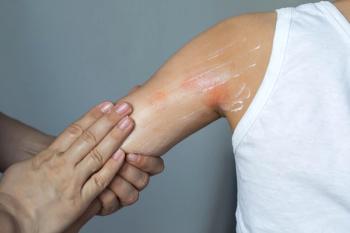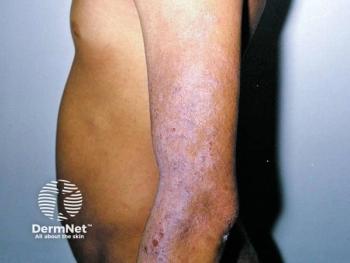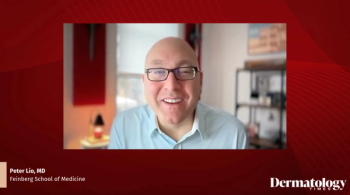
Modern medical acupuncture in dermatology
New Orleans — Modern medical acupuncture can be used in conjunction with current Western treatments in dermatology to optimize patient outcome, according to Donald J. Baker, M.D., clinical professor and director of integrative dermatology at the University of Medicine and Dentistry, New Jersey, Robert Wood Johnson Medical School, Camden, N.J.
"Acupuncture is best used as adjunctive therapy because it allows us to enhance our patient care without interfering with traditional therapy," Dr. Baker says.
Specific uses Speaking at the 63rd Annual Meeting of the American Academy of Dermatology (AAD), Dr. Baker reviewed reports on the effectiveness of acupuncture in treating acute urticaria, acne, herpes zoster, psoriasis and atopic dermatitis, as well as rosacea, pruritus, systemic lupus erythematosus, discoid lupus, scleroderma and dyshidrotic eczema.
Modern vs. traditional acupuncture Traditional Asian acupuncture is based on correcting imbalances of Qi (the life force), blood fluids, yin and yang. By contrast, modern medical acupuncture is based on knowledge of neurophysiology and the stimulation of different points on the body to alter neuroendocrine, autonomic and immune function. Modern medical acupuncture sometimes uses electrical currents to stimulate acupuncture points.
One of the positive consequences of using acupuncture is fewer side effects, Dr. Baker says.
"With acupuncture, you are correcting imbalances in sympathetic and parasympathetic function, which ultimately improves neuroendocrine and immune function," he says.
Complications, contraindications While Dr. Baker says there is low risk of infection when sterile disposable needles are used, occasionally patients will have a vasovagal episode during their first few treatments. Serious complications - including pneumothorax, organ injury and nerve injury - are extremely rare, he adds.
Acupuncture is not an ideal treatment option in patients who are on anticoagulants, because of the risk of developing hematomas. In such patients, Dr. Baker says he uses transcutaneous microcurrent electrical stimulation alone to stimulate acupuncture points. If patients have extensive skin disease, there is the possibility of inserting needles through potentially infected or colonized skin. Transcutaneous microcurrent electrical stimulation is also a treatment option for these patients.
Training requirements for acupuncture vary from state to state. Those interested in incorporating acupuncture into their dermatological practices should first check with their state medical board about the requirements.
For more information:
The American Academy of Acupuncture:
Newsletter
Like what you’re reading? Subscribe to Dermatology Times for weekly updates on therapies, innovations, and real-world practice tips.












